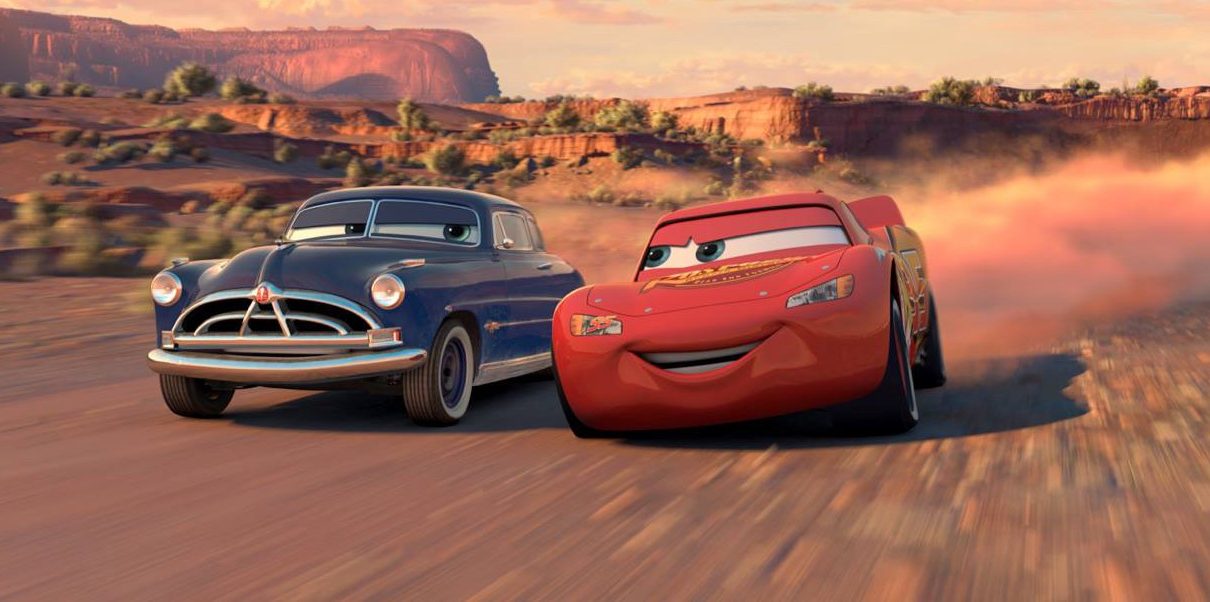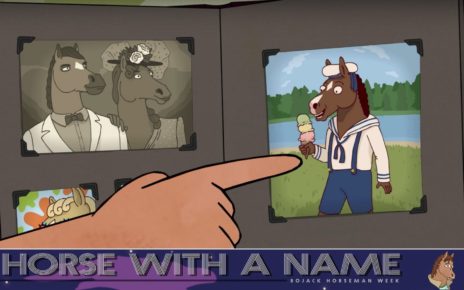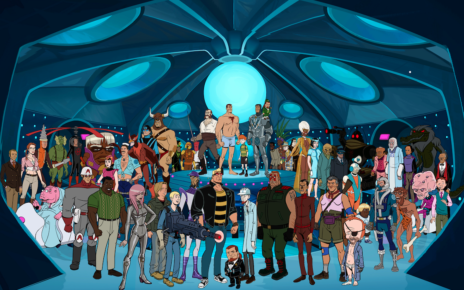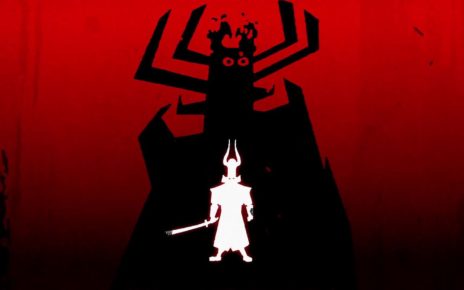The legacy of Cars is…complicated. The final movie produced by Pixar Animation Studios before it was acquired by Walt Disney Pictures, Cars is Pixar’s seventh feature film, but for many fans, its first misstep. Cars and its sequel Cars 2 hold the lowest Rotten Tomatoes scores of any Pixar film, and a decade after its 2006 release, the flick’s worth has barely proven a debate—until now! Today, ten years after the first Cars premiered in theaters, two dedicated followers of cartoons attempt to answer an urgent question: Is Cars good?
Feel free to chime in with your own thoughts in the margins; in this raging dispute, there’s no such thing as too much ink—err, oil—spilled.
The Argument for Cars

Cars has all your Pixar basics: anthropomorphic characters with differing ideologies and clashing personalities that ultimately rally together for the “greater good,” well-placed comedic beats, self-referential jokes, excellent music, and a whole lot of heart. These traits, admittedly, don’t necessarily make a great film. But the common gripes with Cars should not result in a reputation as a terrible, or even mediocre, film. Stock car racing, a relatively unlikeable protagonist, and Larry the Cable Guy in a supporting role aren’t grounds for an automatic dismissal of Cars.
On lists that rank Pixar’s 16 extant films, one will often find Cars ranked somewhere in the double digits. The film came out at a time when a Pixar backlash seemed imminent, and despite overall positive reviews from critics, the public typically classifies Cars as a Pixar misfire. And that’s nonsense. Cars not only embodies every aspect of storytelling that Pixar holds near and dear — it elevates them to even higher levels.
Stock car racing as a story device is actually genius.
Let’s start with the stock car racing. The central theme of Cars is, unfortunately, a huge turnoff for a lot of people. Despite its popularity in the States, NASCAR and stock car racing in general have frequently been considered lowbrow. Also taking into account that there are so few animated films revolving around sports at all, there was significant potential for Cars to be a disaster. The anticipation of a debacle, along with the ambivalence and disdain toward NASCAR, is likely much of what pushed people away in the first place.
Yet stock car racing as a story device is actually genius. Racing is both an individual and a team sport, which is why Lightning McQueen’s complicated characteristics are showcased to examine how individual glory can overpower teamwork. His egotism and self-obsession and their consequent shortcomings offer us the complications of flying solo; one can accomplish things solo, but humility and support will take a competitor even further. Lightning only becomes a successful individual — a winner — by the end of the film after working to build a team, which becomes a mutual support system. To have Lightning be likable throughout the film would simplify and undermine the plot’s exploration of complicated personalities — and of the nature of the sport itself.
Aside from the film’s vastly underrated story and characters, Cars is a technical marvel. Route 66 and the wider car culture imagery are beautifully rendered, and the appropriation of NASCAR camera angles into the visual composition is seamless. Every frame of the film is intricately detailed and well-researched, but presented to the audience in a way that doesn’t feel pretentious.
Some say Cars is a backfire. (Like an exhaust pipe! Get it? Huh? Bet you didn’t see that joke in your rearview!) Most say the film is just OK. I may be a bit bold in calling Cars Pixar’s pièce de résistance, but it’s a film that does most everything right and catches too much flack for the wrong reasons. It deserves, at the very least, a NASCAR-caliber Top 5 finish on Pixar’s ranking. Cars 2 can stay somewhere at the back of the pack, though.
The Argument Against Cars
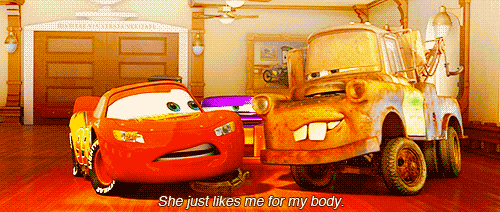
Cars is one giant onion of apathetic nonsense. The cars are people. They have mouths and teeth and eyes. And sexual desires. The movie opens with Red Car being basically dismembered during a race. Traditional physics don’t matter. The cars have cameras and television. And some cars are jeeps. Or trains. From the very get-go, the universe this story exists in makes no sense.
The initial conceit of the movie is that “everything is cars.” Or at least that’s how I assume the pitch went — director John Lasseter ran into a room shouting “Everything is cars! Everything is cars!” and everyone was just jumping up and down throwing one hundred dollar bills at him. And “everything is cars” is a fine jumping off point for creating a universe. But the movie never builds on that. The fact that the main characters are cars is basically irrelevant to the story. If you changed all the characters to candles, it’s the same movie.
He wants to have car sex with car Bonnie Hunt.
The Cars world is basically the same as our human world. There is electricity and agriculture and gender, and Ari from Entourage is a character. But humans have never existed in this universe. Instead there are car parallels of celebrities from Arnold Schwarzenegger to Bob Costas to Jay Leno. The Cars universe is so odd that the only way I can explain it is to say that an army of alien vehicles overthrew humanity and remade the Earth in the image of 2006 America. It’s lunatic nonsense that doesn’t even try to make sense or to justify itself.
The story itself was created with equally little effort. Red Car is a dickhead for no apparent reason. He gets stuck in a town, where he’s made an indentured servant who has to fix the road. He wants to have car sex with car Bonnie Hunt. There is a song that is nostalgic for 1950s Car-’Merica. Larry the Cable Car is there. Red Car eventually becomes nicer or something and loses a race on purpose because old cars are people too, and then it’s over. I truly don’t know what the viewer is supposed to take away from this story.
This is the point when people start saying, “Well, it’s a kid’s movie.” But Pixar is successful and culturally relevant precisely because it holds “kids movies” to the same standard it would any other movie. Toy Story, Wall-E, and Inside Out don’t spoonfeed the story to you. They don’t shy away from emotional moments. They give you a meaningful story that’s accessible to folks of all ages. But Cars approaches its intended audience the same way a lot of movies do: “Kids are dumb idiots. They’ll like what we give them.” They just didn’t try. Cars could have been really cool. I believe that. That’s a fun premise to build a world and story in. But all we ever got was the basic premise and insinuations of Bonnie Hunt car sex.
–Andy Potoczak, of the ‘Recreation’ podcast (SoundCloud • iTunes)
Thanks for reading The Dot and Line, where we take animation of all kinds seriously (but not too seriously). If you liked what you read, recommend this article and follow us on Twitter and Facebook.


